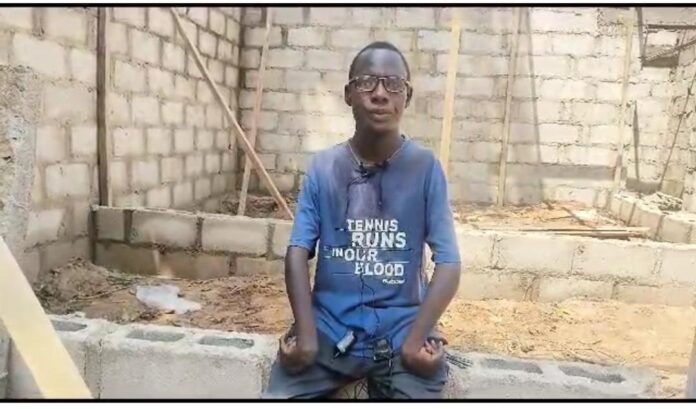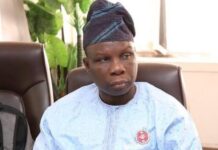Salamatu-WOFAN Succour: Story of Amadu and his neglected community, by Prof. MK Othman
Deep Thought with Othman
Even a stone-hearted devil cannot but must be undoubtedly empathetic to the plight of Malam Amadu Yakubu, a devastatingly physically challenged person living in one of the most neglected communities in Jigawa state. Amadu lives in Kudai, a suburb of Dutse, which is the state capital of Jigawa. Amadu’s limbs, the two hands and legs, are crippled, born with disability. And he can neither walk nor use his hands to do any physical work for his livelihood. He crawls with difficulty moving even for a short distance, except when carried to aid his movement. Despite his disability, Amadu acquires a large, ambitious heart to be a lawyer or journalist. This ambition made Amadu think of going to school, which made him skillful in writing with the fingers of his legs. The day Amadu started practicing writing with his mouth and finally settled to write with his legs, his father wept. Amadu’s perseverance, resilience, and determination far outweighed his disability and relegation to the lowest level of society, and he thus became proficient in leg writing. My readers may recall my article on World Peace Day celebrated in Kudai, Nigeria, and London, the United Kingdom. Amadu Yakubu, a young tetraplegic man, was instrumental in WOFAN’s celebration of World Peace Day at Kudai hamlet. Despite Amadu’s physical constraints, his journey exemplifies the human spirit’s quest for dignity through hard effort. His narrative, along with the stories of other community members, made a strong connection leading to WOFAN’s marvelous work, impacting tens of thousands of lives in the rural communities of Jigawa state.
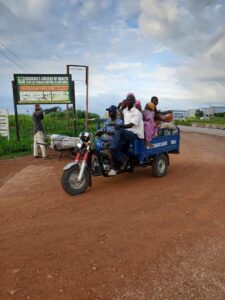
Amadu went through primary school and attended junior secondary school, writing and passing all the classroom examinations with his legs alongside his 68 able-body classmates. Being from a neglected community with little or no necessary infrastructure, Amadu has to abandon his tall ambition but vow not to be a beggar, as many people in his condition do. He prefers to earn a living through his mastery of writing with legs that attract the sympathy of passersby who donate token financial gifts to him. Through the meager earnings, Amadu marries his loving wife and acquires three healthy children whom he takes care of.
READ ALSO: Salamatu-WOFAN: Celebrating World Peace Day in Kudai and London, by Prof MK Othman
Today, Amadu is triumphant against his birth disabilities, a shining example of how physically challenged persons can use their brains to live a happy and harmonious life of responsibility as husband and father. One cannot but be flabbergasted when watching Amadu use his disabled legs and head to perform ablution, a prerequisite ritual for observing five daily prayers. With proper support, Amadu can reach his zenith of attaining his desired barrister or famous journalist status to serve society like other abled bodies. Unfortunately, Amadu lives in Kudai, a forgotten and grossly neglected community in the Dutse Local Government Area.
Kuddi, like thousands of suburb communities near state capitals, such as Rijiyar Zaki, Kurna Asabe in Kano state, Abukur, Dandagoro in Katsina state, Rigasa, Mararabar Jos, Dankande in Kaduna state, and several other areas in Nigeria, are grossly neglected and hardly enjoy government presence in terms of infrastructure and good governance. Sometimes, one begins to think about whether the meaning of governance has changed in Nigeria from serving the people with public funds to lining up the pockets of politicians and unscrupulous civil servants. People in such areas live without pipe-borne water, electricity, roads, drainage systems, and security, and they are only visited during electioneering campaigns to be given handouts and empty promises. The areas are overwhelmed with challenges of poverty, such as malnutrition, illiteracy, poor access to healthcare, quality food, and other necessities of life. So, Amadu and his neighborhoods accepted their fates as everyday life in Nigeria until WOFAN discovered him pitiful video clip showcasing Amadu manipulating a pen with his legs to legibly write on paper.
Dr. Salamatu Garba Kano, a benevolent personality, the founder of the Women Farmers Advancement Network (WOFAN), and the Country Director of the ICON 2 Project in Nigeria was severely touched when she saw a video clip of Amadu strenuously struggling to perform ablution as if it were film scrip from Kennywood. Dr. Salamatu immediately launched a manhunt for Amadu to receive succor. WOFAN is a women-dominated NGO with 80% women and 20% men. It is famously known for providing hope to the hopeless and respite to downtrodden masses.
Over the past thirty years, WOFAN has made significant progress in ending hunger, reducing poverty, and empowering young people and vulnerable populations economically. WOFAN began with innumerable triumphs and, through entrepreneurship and capacity building along the agricultural value chains in 10 states in Nigeria, has conservatively improved the lives of almost seven million Nigerians. WOFAN has affected and empowered 150,000 people annually on average over the last five years, which is a countable list of accomplishments. Right now, WOFAN is working on an Integrated Community-led Network of Hope Scale-up (ICON2) project that will reach 675,000 people in the 18–35 age range over the course of three years. The ICON 2 initiative in Nigeria is funded by the Master Card Foundation. The project execution scorecard is astonishing, as WOFAN exceeded its annual objective of 225,000 individuals by empowering 327,686 (146%) women and youth in the project’s first year. The beneficiaries were 17,500 ultra-poor people, 12,750 people with disabilities (PWD), and 6,100 internally displaced people (IDP) from ten states. Through the project intervention, WOFAN increases the productivity of smallholder farmers with an increased rice yield from an average of 1.5 tons/ha to 5 tons and maize from 1.8 tons/ha to 6 tons/ha, among many stable crops on over 100,000 hectares of farmland across the ten project implementation states.
When WOFAN launched a manhunt for Amadu, his condition was found to be as bad as in the video clip. Still, he had the insatiable capacity to survive the hostile terrain of Kudai like other healthy people. WOFAN’s discovery of Amadu greatly blessed the entire Kudai community. WOFAN made the Kudai community to play host to 2024 World Peace Day which attracted unprecedented overnight development. WOFAN swung into action. Within six weeks of the D-day celebration, the residents of Kudai and surrounding areas, including women, youth, and individuals with special needs, were organized and educated into six active cooperatives aimed at achieving economic independence for both individual and societal benefit. The Kudai people were given a community center with a rice mill, maize flour processing equipment, and a 24-hour solar energy source to empower them economically. Twenty-four tricycle carriers with a one-and-a-half-ton capacity were also supplied to the organizations for commercial delivery of farm produce. The physically challenged persons were given tricycles for ease of mobility, and Amadu, who functioned as WOFAN’s access point into the village, was given a phone electric charger capable of charging 120 phones and 30 computers connected to a 24-hour solar-powered source of electricity. The celebration day was graced by prominent personalities – traditional rulers, community leaders, and technocrats. Amadu was the happiest person who was visibly emotional about the hundreds of millions of Naira worth of economic empowerment facilities provided to his community by WOFAN. It was a vintage Dr. Salamatu, the founder of WOFAN.
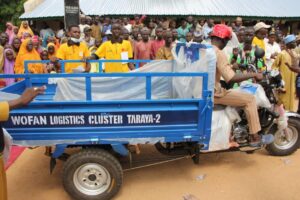
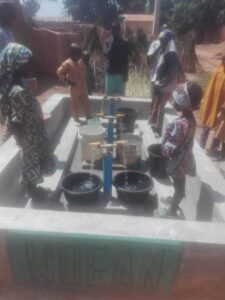
Two key lessons from the story of Amadu are that disability does not inhibit people from struggling to be beneficial to themselves and society. Politicians should adopt the worldwide definition of governance by serving the people, a trust given to them when elected. The day of reckoning is fast approaching, when they will stand before the Almighty God to account for their deeds and all the public funds under their care.
Professor Mk Othman was a two term Executive Director of the National Agricultural Extension Liaison and Research Services, NAERLS, and is currently a Senior lecturer at the Ahmadu Bello University, ABU, Zaria.
Disclaimer
The opinions and views expressed in this article belong solely to the original author and other contributors. They do not necessarily reflect the official policy or opinions of Neptune Prime.
Follow the Neptune Prime channel on WhatsApp:
Do you have breaking news, interview request, opinion, suggestion, or want your event covered? Email us at neptuneprime2233@gmail.com

